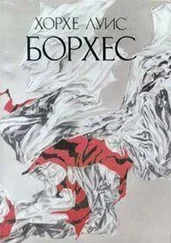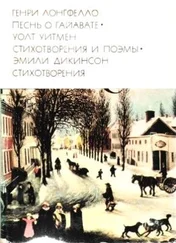Уолт Уитмен - The Wound Dresser
Здесь есть возможность читать онлайн «Уолт Уитмен - The Wound Dresser» — ознакомительный отрывок электронной книги совершенно бесплатно, а после прочтения отрывка купить полную версию. В некоторых случаях можно слушать аудио, скачать через торрент в формате fb2 и присутствует краткое содержание. Жанр: foreign_prose, История, foreign_edu, foreign_antique, на английском языке. Описание произведения, (предисловие) а так же отзывы посетителей доступны на портале библиотеки ЛибКат.
- Название:The Wound Dresser
- Автор:
- Жанр:
- Год:неизвестен
- ISBN:нет данных
- Рейтинг книги:4 / 5. Голосов: 1
-
Избранное:Добавить в избранное
- Отзывы:
-
Ваша оценка:
- 80
- 1
- 2
- 3
- 4
- 5
The Wound Dresser: краткое содержание, описание и аннотация
Предлагаем к чтению аннотацию, описание, краткое содержание или предисловие (зависит от того, что написал сам автор книги «The Wound Dresser»). Если вы не нашли необходимую информацию о книге — напишите в комментариях, мы постараемся отыскать её.
The Wound Dresser — читать онлайн ознакомительный отрывок
Ниже представлен текст книги, разбитый по страницам. Система сохранения места последней прочитанной страницы, позволяет с удобством читать онлайн бесплатно книгу «The Wound Dresser», без необходимости каждый раз заново искать на чём Вы остановились. Поставьте закладку, и сможете в любой момент перейти на страницу, на которой закончили чтение.
Интервал:
Закладка:
I remain in capital health and strength, and go every day, as before, among the men, in my own way, enjoying my life and occupation more than I can tell.
Of the army hospitals now in and around Washington, there are thirty or forty. I am in the habit of going to all, and to Fairfax seminary, Alexandria, and over Long Bridge to the convalescent camp, etc. As a specimen of almost any one of these hospitals, fancy to yourself a space of three to twenty acres of ground, on which are grouped ten or twelve very large wooden barracks, with, perhaps, a dozen or twenty, and sometimes more than that number, of small buildings, capable all together of accommodating from five hundred to a thousand or fifteen hundred persons. Sometimes these large wooden barracks, or wards, each of them, perhaps, from a hundred to a hundred and fifty feet long, are arranged in a straight row, evenly fronting the street; others are planned so as to form an immense V; and others again arranged around a hollow square. They make all together a huge cluster, with the additional tents, extra wards for contagious diseases, guard-houses, sutler’s stores, chaplain’s house, etc. In the middle will probably be an edifice devoted to the offices of the surgeon in charge and the ward surgeons, principal attachés, clerks, etc. Then around this centre radiate or are gathered the wards for the wounded and sick.
These wards are either lettered alphabetically, Ward G, Ward K, or else numerically, 1, 2, 3, etc. Each has its ward surgeon and corps of nurses. Of course there is, in the aggregate, quite a muster of employees, and over all the surgeon in charge. Any one of these hospitals is a little city in itself. Take, for instance, the Carver hospital, out a couple of miles, on a hill, northern part of Fourteenth street. It has more inmates than an ordinary country town. The same with the Lincoln hospital, east of the Capitol, or the Finley hospital, on high grounds northeast of the city; both large establishments. Armory-square hospital, under Dr. Bliss, in Seventh street (one of the best anywhere), is also temporarily enlarged this summer, with additional tents, sheds, etc. It must have nearly a hundred tents, wards, sheds, and structures of one kind and another. The worst cases are always to be found here. A wanderer like me about Washington pauses on some high land which commands the sweep of the city (one never tires of the noble and ample views presented here, in the generally fine, soft, peculiar air and light), and has his eyes attracted by these white clusters of barracks in almost every direction. They make a great show in the landscape, and I often use them as landmarks. Some of these clusters are very full of inmates. Counting the whole, with the convalescent camps (whose inmates are often worse off than the sick in the hospitals), they have numbered, in this quarter and just down the Potomac, as high as fifty thousand invalid, disabled, or sick and dying men.
My sketch has already filled up so much room that I shall have to omit any detailed account of the wounded of May and June, 1864, from the battles of the Wilderness, Spottsylvania, etc. That would be a long history in itself. The arrivals, the numbers, and the severity of the wounds, out-viewed anything that we have seen before. For days and weeks a melancholy tide set in upon us. The weather was very hot. The wounded had been delayed in coming, and much neglected. Very many of the wounds had worms in them. An unusual proportion mortified. It was among these that, for the first time in my life, I began to be prostrated with real sickness, and was, before the close of the summer, imperatively ordered North by the physician to recuperate and have an entire change of air.
What I know of first Fredericksburg, Chancellorsville, Wilderness, etc., makes clear to me that there has been, and is yet, a total lack of science in elastic adaptation to the needs of the wounded after a battle. The hospitals are long afterward filled with proofs of this.
I have seen many battles, their results, but never one where there was not, during the first few days, an unaccountable and almost total deficiency of everything for the wounded—appropriate sustenance, nursing, cleaning, medicines, stores, etc. (I do not say surgical attendance, because the surgeons cannot do more than human endurance permits.) Whatever pleasant accounts there may be in the papers of the North, this is the actual fact. No thorough previous preparation, no system, no foresight, no genius. Always plenty of stores, no doubt, but always miles away; never where they are needed, and never the proper application. Of all harrowing experiences, none is greater than that of the days following a heavy battle. Scores, hundreds, of the noblest young men on earth, uncomplaining, lie helpless, mangled, faint, alone, and so bleed to death, or die from exhaustion, either actually untouched at all, or with merely the laying of them down and leaving them, when there ought to be means provided to save them.
The reader has doubtless inferred the fact that my visits among the wounded and sick have been as an independent missionary, in my own style, and not as an agent of any commission. Several noble women and men of Brooklyn, Boston, Salem, and Providence, have voluntarily supplied funds at times. I only wish they could see a tithe of the actual work performed by their generous and benevolent assistance among the suffering men.
He who goes among the soldiers with gifts, etc., must beware how he proceeds. It is much more of an art than one would imagine. They are not charity-patients, but American young men, of pride and independence. The spirit in which you treat them, and bestow your donations, is just as important as the gifts themselves; sometimes more so. Then there is continual discrimination necessary. Each case requires some peculiar adaptation to itself. It is very important to slight nobody—not a single case. Some hospital visitors, especially the women, pick out the handsomest looking soldiers, or have a few for their pets. Of course some will attract you more than others, and some will need more attention than others; but be careful not to ignore any patient. A word, a friendly turn of the eye or touch of the hand in passing, if nothing more.
One hot day toward the middle of June I gave the inmates of Carver hospital a general ice-cream treat, purchasing a large quantity, and going around personally through the wards to see to its distribution.
Here is a characteristic scene in a ward: It is Sunday afternoon (middle of summer, 1864), hot and oppressive, and very silent through the ward. I am taking care of a critical case, now lying in a half lethargy. Near where I sit is a suffering Rebel from the Eighth Louisiana; his name is Irving. He has been here a long time, badly wounded, and lately had his leg amputated. It is not doing very well. Right opposite me is a sick soldier boy laid down with his clothes on, sleeping, looking much wasted, his pallid face on his arm. I see by the yellow trimming on his jacket that he is a cavalry boy. He looks so handsome as he sleeps, one must needs go nearer to him. I step softly over, and find by his card that he is named William Cone, of the First Maine Cavalry, and his folks live in Skowhegan.
Well, poor John Mahay is dead. He died yesterday. His was a painful and lingering case. I have been with him at times for the past fifteen months. He belonged to Company A, One Hundred and First New York, and was shot through the lower region of the abdomen at second Bull Run, August, 1862. One scene at his bedside will suffice for the agonies of nearly two years. The bladder had been perforated by a bullet going entirely through him. Not long since I sat a good part of the morning by his bedside, Ward E, Armory-square; the water ran out of his eyes from the intense pain, and the muscles of his face were distorted, but he utters nothing except a low groan now and then. Hot moist cloths were applied, and relieved him somewhat. Poor Mahay, a mere boy in age, but old in misfortune, he never knew the love of parents, was placed in his infancy in one of the New York charitable institutions, and subsequently bound out to a tyrannical master in Sullivan county (the scars of whose cowhide and club remained yet on his back). His wound here was a most disagreeable one, for he was a gentle, cleanly, and affectionate boy. He found friends in his hospital life, and, indeed, was a universal favorite. He had quite a funeral ceremony.
Читать дальшеИнтервал:
Закладка:
Похожие книги на «The Wound Dresser»
Представляем Вашему вниманию похожие книги на «The Wound Dresser» списком для выбора. Мы отобрали схожую по названию и смыслу литературу в надежде предоставить читателям больше вариантов отыскать новые, интересные, ещё непрочитанные произведения.
Обсуждение, отзывы о книге «The Wound Dresser» и просто собственные мнения читателей. Оставьте ваши комментарии, напишите, что Вы думаете о произведении, его смысле или главных героях. Укажите что конкретно понравилось, а что нет, и почему Вы так считаете.











